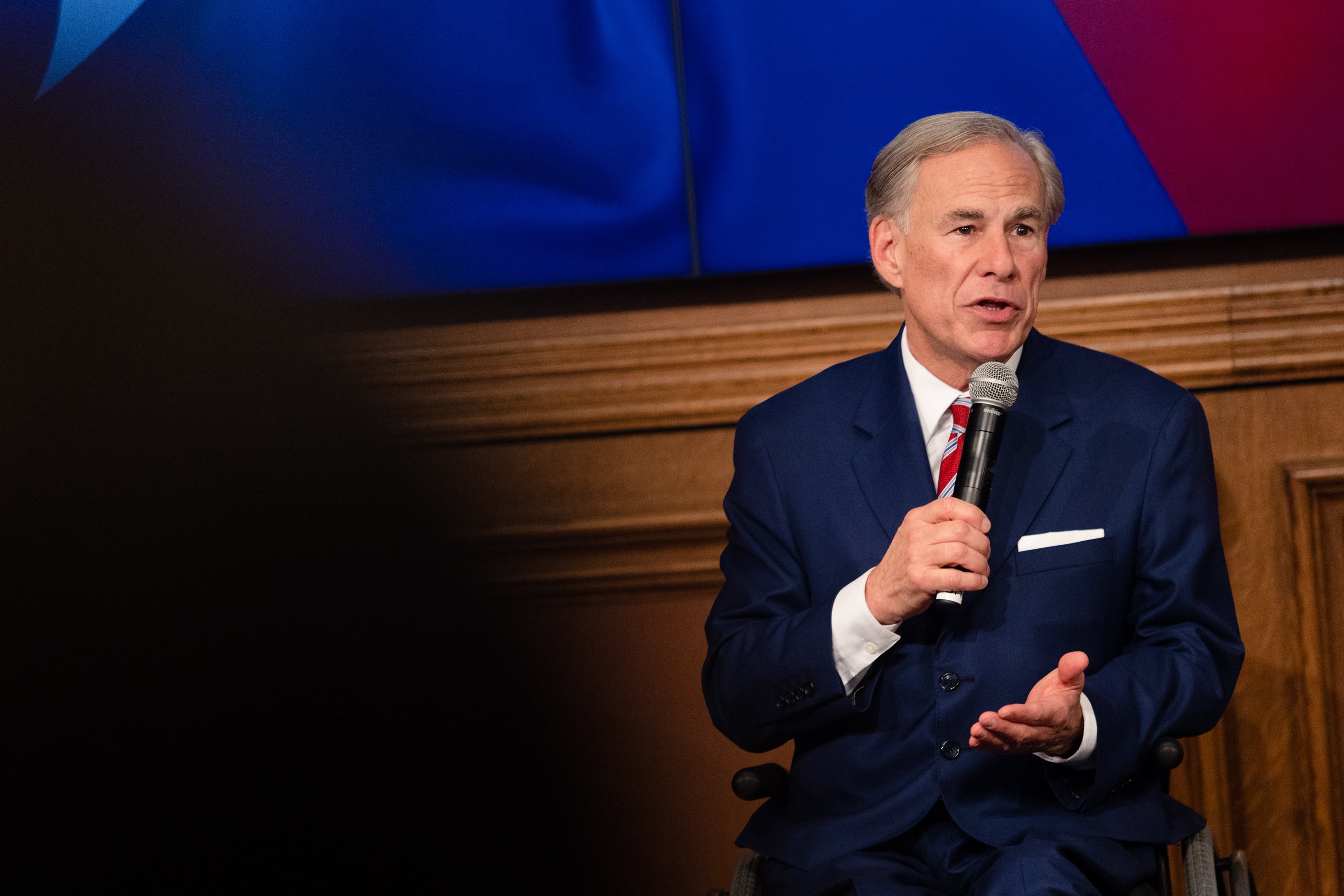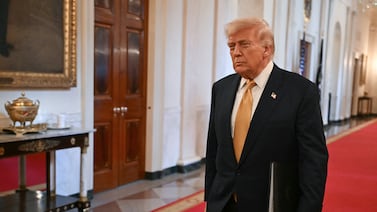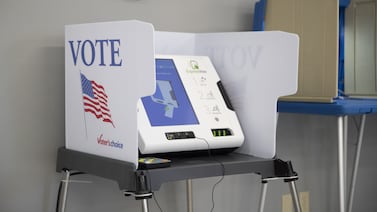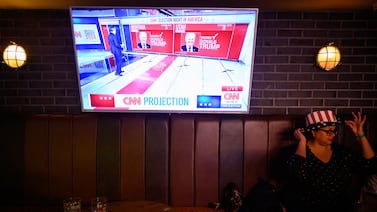Votebeat is a nonprofit news organization reporting on voting access and election administration across the U.S. Sign up for our free newsletters here.
Gov. Greg Abbott on Saturday vetoed a bipartisan bill that would have expanded vote-by-mail access for people with disabilities — specifically people who are blind or paralyzed and need assistance marking their ballot.
Advocates say Abbott’s veto of House Bill 3159 is a blow for voters with disabilities who have for years called for the Legislature to grant them a way to mark their mail-in ballots without having to rely on anyone else.
Co-authored by state Rep. Jeff Leach, R-Plano, and state Rep. John H. Bucy III, D-Austin, the bill would have allowed voters who need help casting a ballot, such as people who are visually impaired or are paralyzed, to do so “privately and securely” by requesting an electronic ballot and using a computer to mark their choices. The bill still would have required those voters to print out, sign and return their ballots by mail.
Similar bills had been filed since 2019 without success. This was the first time a bill of its kind made it to the governor’s desk.
In a resolution explaining his veto Saturday, Abbott called the intent of the bill “laudable” but said the bill does not limit the use of an electronic and accessible ballot by mail only to voters with disabilities. He says the bill would allow “any voter who qualifies to vote by mail to receive a ballot electronically.”
But some policy experts and voting rights advocates say Abbott is incorrect.
The bill requires voters who want to vote by mail using the electronically delivered accessible ballot to affirm they “have a sickness or physical condition preventing them from appearing at the polling place on election day without a likelihood of needing personal assistance or injuring [their] health.” Under current Texas law, anyone who falsely affirms they qualify to vote by mail may be prosecuted for illegal voting, which in September will become a second-degree felony.
“Greg Abbott either didn’t read this bill closely enough to understand what it really does or is deliberately working to make it harder for Texans with disabilities to vote,” Katya Ehresman, the voting rights program manager for Common Cause Texas, said in a statement.
Leach declined to comment on the veto Tuesday. Bucy described the veto as surprising and disheartening, adding that he and Leach worked through the legislative session to add the kind of restrictions that Abbott now says are missing.
“I think the governor got it wrong, not just on the interpretation of the bill but also just got it wrong on the opportunity to pass some really forward-thinking policy,” he said.
Abbott did sign a bill that improves in-person voting for those with disabilities or mobility problems, allowing them to skip the line at their polling location and requiring polling places to designate more than one parking space for curbside voting.
But advocates who have long fought for more access to mail ballots for voters with disabilities were disappointed and frustrated by his veto of HB 3159, which passed both legislative chambers with strong bipartisan support. The bill, in part, also gained such support because some Texas counties are already using a similar method of delivering electronic ballots for military voters overseas. The bill would have expanded the use of these options to voters with disabilities.
“This is giving people the exact same opportunity and access as anyone else. Everyone else that votes now has the right to a secret ballot, and voters with disabilities, too, should have that right,” Chase Bearden, deputy executive director of the Coalition of Texans with Disabilities, told Votebeat. “It is time. We can’t wait until the next session to do this.”
The veto by Abbott, who is paralyzed from the waist down and uses a wheelchair, also came as a surprise after members of his own Governor’s Committee on People with Disabilities testified in April on how the bill would benefit people with disabilities. The committee, formed by members appointed by Abbott, makes recommendations to the governor and Legislature on disability issues, promotes compliance with disability-related laws and promotes a network of local committees doing similar work, among other duties.
Under current law, voters with disabilities who need help casting a ballot are the only group of voters who, if they wish to vote independently, must do so using an accessible voting machine at a polling location. Current Texas law already restricts who can vote by mail to people who are 65 and older, people with a physical disability, those expecting to give birth three weeks before or after Election Day, people who are away from the county during early voting or on Election Day and people who are in jail but otherwise eligible. The mail-in ballots have to be marked, signed and returned by mail or in person.
Conservative activists opposed the bill, saying they feared it would lead to mail ballot fraud, although there’s no evidence to support that. Others who submitted public comments online said the bill was “a trojan horse bill that will open up remote electronic voting.” Some of the same people who opposed the bill during legislative debate also called on Abbott to veto it.
A revival of the bill is unlikely, said Daniel Griffith, senior policy director at Secure Democracy USA. Abbott himself would have to call the Legislature into a special session on the issue to do so.
Griffith said the bill’s restrictive language is why it garnered enough bipartisan support to make it through the legislative process. It’s unclear whether Abbott expressed his concerns to Leach or Bucy ahead of his veto.
“Given that clearly this was the result of bipartisan compromise, I’m sure that the authors and the various sponsors of the bill would definitely have listened and been responsive to anything the governor might have had to say,” Griffith said.
Natalia Contreras covers election administration and voting access for Votebeat in partnership with the Texas Tribune. Contact Natalia at ncontreras@votebeat.org.






